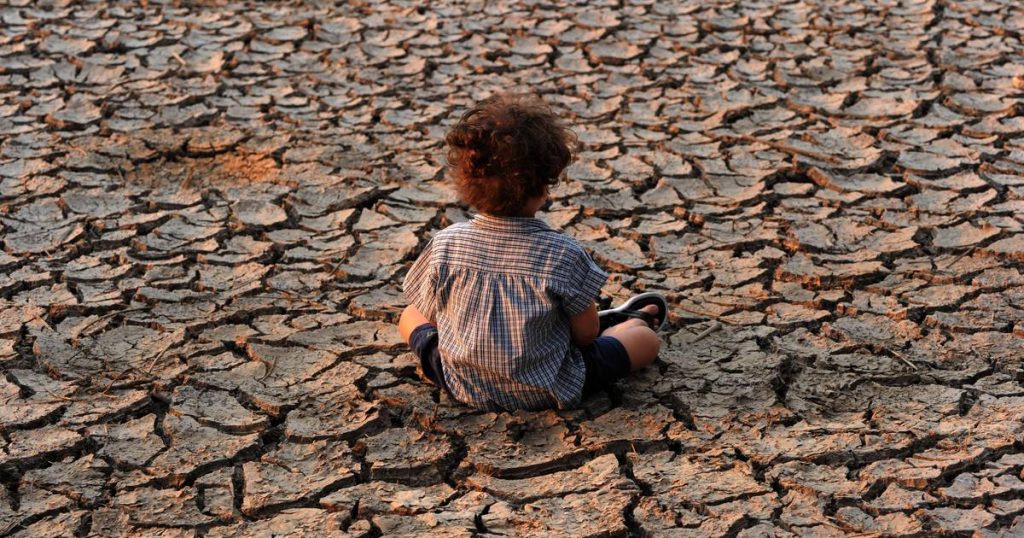It is possible to reduce greenhouse gas emissions by half by 2030 compared to 2019 and thus maintain the climate target of a maximum of 1.5 degrees of warming on the horizon. That is the conclusion reached by the United Nations Climate Committee IPCC in a report published today. According to climate scientists, governments, businesses and consumers must act now. The Secretary-General of the United Nations described the current situation as a “disgrace”.
Greenhouse gas emissions have increased further in the past decade, although the growth rate has been stable. The Intergovernmental Panel on Climate Change stresses that it is critical not to allow the Earth’s temperature to rise more than 1.5°C compared to the preindustrial average temperature. Scientists say that “additional and directly implemented” climate policies are needed. If policy remains unchanged, Earth will be about 3.2 degrees warmer by 2100.
The Intergovernmental Panel on Climate Change says global cooperation is needed to achieve climate goals. Global treaties, such as the Paris Climate Agreement, are important means of further achieving national climate policy. Scientists advise making as few “soft compromises” as possible and involving key groups such as youth and local communities in climate policy.
greenhouse gases
Ultimately, the goal is for global greenhouse gas emissions to reach “net zero”. All emissions that still occur must be absorbed, for example, through trees or technological applications, such as filters that capture carbon dioxide. Climate scientists assert that reducing emissions is essential in all sectors. This also applies to agriculture and industry, where the Intergovernmental Panel on Climate Change calls the transition to climate neutrality “difficult but possible”.
Scientists stress the importance of replacing fossil fuels with renewable energy. For example, biofuels and green hydrogen could be an important alternative to oil, gas and coal in the short term. The scientists wrote that reliance on technological solutions may become “inevitable” to achieve climate goals. It refers, for example, to the means of capturing and storing carbon dioxide.
In relative terms, the costs of the necessary sustainability measures aren’t too bad, according to the scientists in their latest report. “The economic benefit of limiting global warming to a maximum of 2 degrees Celsius is greater than what it would cost if the Earth warmed more.”
“Catalog of Empty Promises”
The Secretary-General of the United Nations, Antonio Guterres, criticized the political world and businessmen in response. “This file is a disgrace, a catalog of empty promises that has clearly set us on the right track to an unlivable world,” he says.
Guterres said governments and companies are “suffocating our planet” with greenhouse gas emissions. Climate activists are sometimes portrayed as dangerous extremists, but the really dangerous radicals are countries that are increasing fossil fuel production. Investing in fossil fuel infrastructure is moral and economic insanity.” The UN Secretary-General is also frustrated by the fact that some governments and companies promise progress but do not deliver. “They lie.”
Guterres stresses that the new IPCC report offers “feasible and financially sound” measures to limit global warming to 1.5 degrees Celsius. He also called on the people of the world to take action themselves. “Demand that renewable energy be provided now, fast and at scale.”
We know that inaction comes at a heavy price, not only in economic terms, but also in terms of human lives.
The report is alarming, but it also shows that “it is still possible to turn things around, by activating all the tools of the low-carbon economy and rethinking our production and consumption models,” Federal Climate Minister Zakia said. ) commented. “We know that doing nothing comes at a heavy price, not only in economic terms, but also in terms of human lives.”
We must go “faster and farther”, the minister concluded. In the first stage, it is critical to “achieve the target for 2030, i.e. cut greenhouse gas emissions by 45 percent at the global level.” For the European Union, this means that the 27 member states will reduce their emissions by 55% by 2030 compared to 1990.
Al-Khattabi says halving greenhouse gas emissions requires “phasing out all uses of fossil fuels, as well as reforming energy, industry, transportation, cities and buildings…”. “It’s ambitious, but it’s possible.”
See also: What can you gain with a low-end thermostat?
Unlimited free access to Showbytes? And that can!
Sign in or create an account and never miss a thing from the stars.

“Creator. Award-winning problem solver. Music evangelist. Incurable introvert.”








More Stories
British military spy satellite launched – Business AM
Alarming decline in the Caspian Sea
Lithuania begins construction of military base for German forces